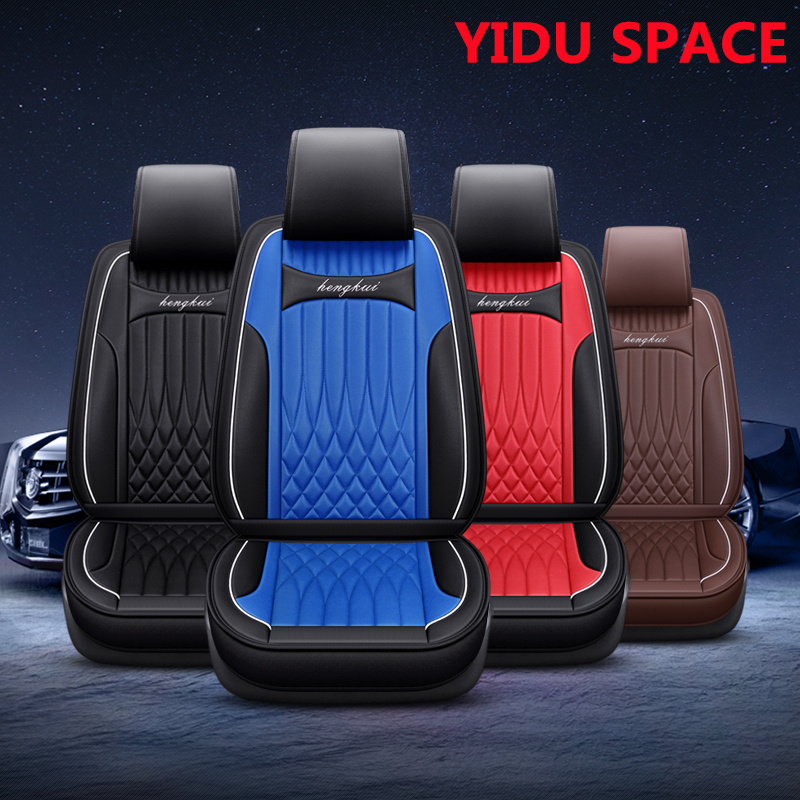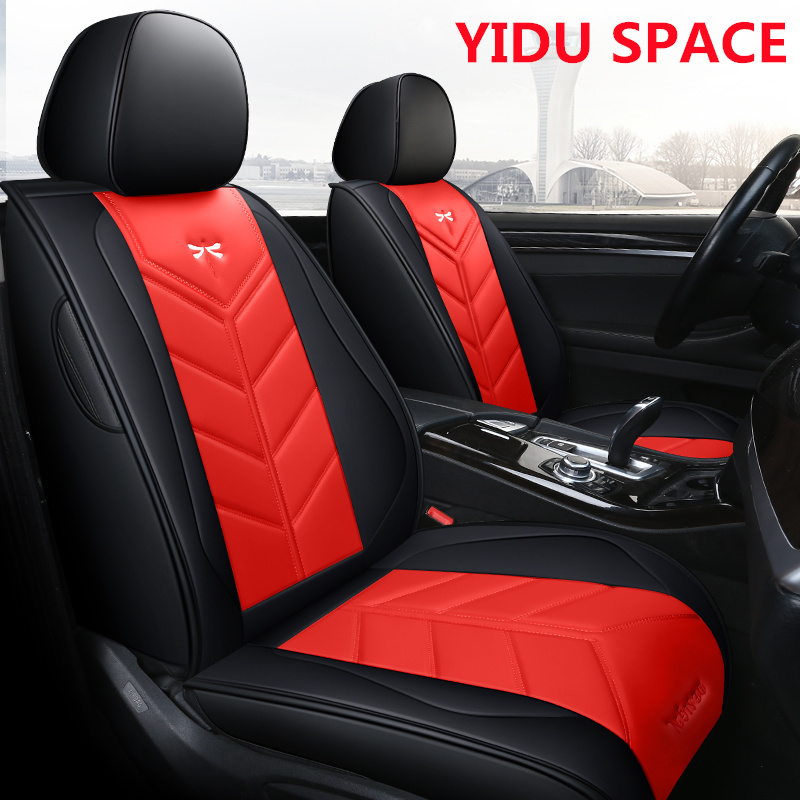What Are the Features of the Ventilation and Heating Functions in Zero-Gravity Seats?
What Are the Features of the Ventilation and Heating Functions in Zero-Gravity Seats?
The ventilation and heating functions of zero-gravity seats have achieved a dual breakthrough in comfort and a sense of technology through aerospace-grade ergonomic design, intelligent control logic, and the application of innovative materials. The following is a detailed analysis from the perspectives of technical implementation, functional characteristics, and typical application scenarios:
I. Ventilation Function: Innovation in Airflow Management and Cooling Efficiency
1. Technical Path and Airflow Optimization
- Suction-based Design as the Mainstream: Most mainstream vehicle models adopt a 12-hole suction design, which extracts hot air from the seat surface through negative pressure. After exposure to the sun, the cooling speed is 30%-40% faster than that of traditional blowing systems.
- Intelligent Airflow Adjustment: Some high-end models support stepless air volume adjustment. Combined with seat pressure sensors, they automatically adjust the airspeed—when the user sits for a long time, the suction intensity is automatically increased to keep the seat dry.
2. Synergy between Material and Structure
- Multi-layer Breathable Composite Structure: For example, the Denza D9 uses a three-layer design of breathable mesh + memory foam + high-elastic sponge, combined with laser-perforated genuine leather (with a hole diameter of 0.8-1.2mm), which not only ensures support but also improves moisture discharge efficiency. The 3D mesh breathable layer of the Voyah Dreamer can maintain elasticity even at -20℃, avoiding reduced ventilation efficiency due to low-temperature hardening.
- Low-noise Fan Technology: The turbo fan of the Buick GL8 produces noise below 50 decibels. It is installed in a suspended manner to reduce resonance and ensure quietness. Some models (such as the GAC Trumpchi M8 Qiankun Series) use sound-absorbing cotton to wrap the air ducts, further reducing operating noise.
II. Heating Function: Breakthrough in Full-range Coverage and Precise Temperature Control
1. Heating Area and Heating Speed
- 3D Encircling Heating: Models such as the Voyah Dreamer and Jikr 9X achieve full-area heating coverage for the seat cushion, backrest, leg rest, and armrest. They can raise the temperature from 17℃ to 37℃ within 150 seconds, which is more than 30% faster than the industry average. The zero-gravity seat of the Li Auto L9 even extends heating to the footrest, allowing rapid warming of the lower limbs in winter.
- Independent Control of Multiple Temperature Zones: The new WEY Gaoshan supports 7-zone 270° encircling heating. It uses an NTC (Negative Temperature Coefficient) module to monitor and adjust power in real time, preventing local overheating. Some models offer 3-level temperature adjustment to meet different thermal comfort needs.
2. Materials and Safety Redundancy
- Application of Graphene Heating Films: Models such as the Jikr 9X and Zunjie S800 adopt graphene heating technology, which achieves a fast thermal response in 3 seconds and reduces energy consumption by 2/3. Meanwhile, its electromagnetic radiation is lower than that of traditional nickel-chromium alloy wires. The outer layer of the heating wire is wrapped with flame-retardant non-woven fabric, and some models (such as the Mercedes-Benz V-Class) add fuses to the circuit to prevent fires caused by short circuits.
- Double Temperature Control System: Most models are equipped with two sets of temperature sensors (e.g., the GL8 has a dual-threshold controller with 50±5℃ and 43±5℃). The system automatically cuts off power when the temperature exceeds the threshold and reactivates when the temperature drops, ensuring safe use.
III. Intelligent Linkage and Scenario-based Experience
1. Multi-modal Interaction and Ecological Integration
- Full-link Intelligent Control: Supports voice commands, remote control via APP (e.g., the GAC Trumpchi APP for the Trumpchi M8), and linkage with seat memory settings. The seat pressure sensor of the XPeng X9 can automatically identify the user and call up preset ventilation/heating preferences.
- Cross-system Collaboration: Deeply integrated with the air conditioning and fragrance systems.
2. Scenario-based Function Design
- In-depth Integration with Zero-Gravity Mode: When the zero-gravity seat of the Li Auto L9 is adjusted to a 140° recline angle, the heating, ventilation, and massage functions are activated simultaneously. Combined with the leg rest heating (which raises the temperature to 38℃ within 3 minutes), it creates a "mobile SPA" experience. The "Ferris Wheel Massage Mode" of the Voyah Dreamer can link with ventilation to adjust the rhythm, further relieving fatigue.
- Linkage with Health Monitoring: Some models use seat sensors to monitor heart rate and breathing frequency. In case of abnormalities, the ventilation function is automatically turned on and the air conditioning parameters are adjusted to improve driving safety.
IV. Energy Consumption Control and Safety Mechanisms
1. Energy Efficiency Optimization and Energy-saving Design
- Intelligent Energy Management: Some models adopt PWM (Pulse Width Modulation) technology to dynamically adjust power according to temperature needs, reducing energy waste.
- Material-level Energy-saving Innovation: Graphene heating films are only 0.2mm thick, reducing energy consumption by 60% compared with traditional solutions, while enabling rapid heating to 35℃ within 30 seconds.
2. Safety Redundancy and Protective Measures
- Speed-sensing Reset: When the vehicle speed exceeds 20km/h, some models automatically reset the seat to a safe sitting position to avoid the zero-gravity posture affecting driving control.
- Anti-pinch and Obstacle Detection: The seat adjustment system is equipped with an anti-pinch function, ensuring safe use for users with heights ranging from 1.5m to 1.9m.
V. Technical Trends and Industry Innovations
1. Material Upgrades: New materials such as bio-based PVC (reducing carbon emissions by 30%) and aerospace-grade magnesium-aluminum alloys (reducing weight by 30%) are gradually being applied, as seen in the 5-zone independent temperature control system of the Cadillac CELESTIQ.
2. Functional Integration: Integration of ventilation/heating with functions such as hot stone therapy and fragrance diffusion.
3. Sustainable Design: High-frequency heat sealing technology (glue-free welding) reduces chemical pollution while improving the airtightness of ventilation bags.
Summary
The ventilation and heating functions of zero-gravity seats have evolved from basic comfort configurations to core carriers of technological experience. Through the optimization of aerodynamics, intelligent control logic, and breakthroughs in material science, significant improvements have been achieved in cooling speed, heating uniformity, and energy consumption control. In the future, with the in-depth integration of technologies such as health monitoring and environmental perception, zero-gravity seats will further reshape the comfort standards of mobile spaces and provide users with a smarter and healthier travel experience.






